Phoenix
Chapter
2016/2017 ARCS Foundation Phoenix Scholars
2016/2017 ARCS FOUNDATION PHOENIX SCHOLARS
ARCS® Foundation Phoenix is honored to present the 2016-2017 Scholar Awards to these outstanding Ph.D. candidates from Arizona State University, Northern Arizona University, and University of Arizona. The ARCS Foundation Scholar Award is $7,000 per year. All scholars must apply through their universities on an annual basis.
Arizona State University Scholars
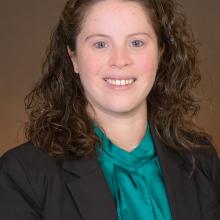
Jennie Appel
- Ph.D. Candidate in Electrical Engineering
- Wilhoit Scholar
- Jennie received a B.S. in Electrical Engineering from Auburn University. She is researching non-invasive methodologies for the early detection of cancer from naturally expelled human patient samples. Her project centers on bio-medical implants, including micro-scaled valves, for the treatment of hydrocephalic fluid retention that leads to lethal brain swelling as well as determining the biocompatibility of materials for medical implants.
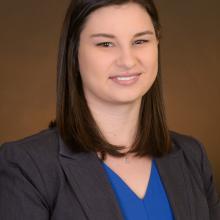
Ashley Boehringer
- Ph.D. Candidate in Neuroscience
- Van Denburgh Scholar
- Ashley received a B.S. in Biology, with minors in Mathematics and Spanish from the University of Arizona. Her research is on the progressive and fatal neurodegenerative disorder Amyotrophic Lateral Sclerosis (ALS). She is focusing on the functional role of a new gene Matrin 3 that was recently discovered to be mutated in some ALS patients. Ashley is mapping out which proteins this new gene interacts within cells as well as what interactions are altered by these mutations in order to understand the pathways that are most affected.
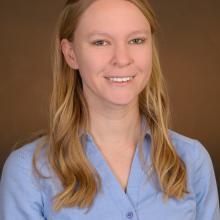
Rebecca Cook
- Ph.D. Candidate in Biological Design
- Kucera Scholar
- Rebecca received a B.S. in Molecular and Cellular Biology from the University of Arizona. She gained outside experience in high throughput genotyping technologies and working in nanotechnology and brain tumor directed drug delivery. Her emphasis is on activating the immune system using targeted antibody systems, specifically for the treatment of glioblastoma, a highly fatal form of brain tumor.
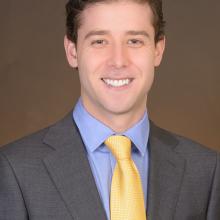
Josh Cutts
- Ph.D. Candidate in Biomedical Engineering
- Sonntag Scholar
- Josh received a B.A. and a M.S. in Biomedical Engineering from California Polytechnic State University, San Luis Obispo. He discovered his passion for research by working in the microcirculation and tissue regeneration laboratory. He seeks to understand how human pluripotent stem cells (hPSCs) adopt specific neuronal fates. This will significantly advance the applications of hPSCs for treating a variety of devastating neurodegenerative disorders.
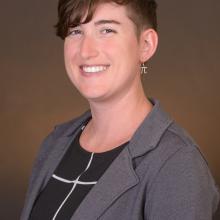
Rene Daer
- Ph.D. Candidate in Biological Design
- Lauber Endowment Scholar
- René received a B.S. in Biology from the California Institute of Technology. She is studying how a bacterial gene-editing tool called CRISPR behaves in more complex mammalian cells. CRISPR is currently being developed into therapies to cure human genetic diseases so understanding its behavior is crucial for these powerful therapies to move into the clinic.
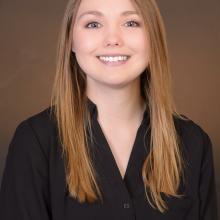
Samantha Day
- Ph.D. Candidate in Biology
- Lawson Scholar
- Samantha received a B.S. in Biochemistry from Arizona State University. She studies epigenetics factors, specifically DNA methylation, that may influence metabolic disorders such as insulin resistance, obesity and type 2 diabetes. The goal is to understand the downstream effects of methylation at particular sites in our genome to create a new source of biomarkers for disease screening.
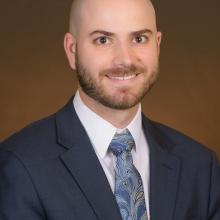
Peter Firth
- Ph.D. Candidate in Electrical Engineering
- Louis Jugloff Memorial Endowment Scholar
- Peter received a B.S. in Chemical Engineering and a M.S. in Electrical Engineering from Arizona State University. He is developing a large- scale hypersonic particle deposition system that is used to coat objects with thin films of nanomaterials for applications including antibacterial fabrics, high-efficiency catalytic converters and improved light management in solar cells.
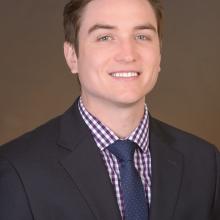
John Heffernan
- Ph.D. Candidate in Bioengineering
- The Ben and Catherine Ivy Foundation Scholar
- John received a B.S. and a M.S. in Biomedical Engineering from Drexel University. His present focus is on engineering novel biomaterials as three-dimensional scaffolds that can be used to grow and study glioblastoma (GBM) brain tumor cells in vitro. These scaffolds enable expansion of precious patient derived GBM tumor samples which, in turn, facilitates analysis of tumor growth characteristics and offers the potential for designing effective personalized therapies.
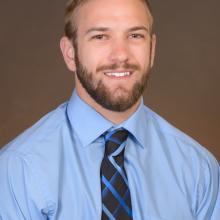
Kyle Householder
- Ph.D. Candidate in Biomedical Engineering
- Erston and Dawn Carson Senger Scholar
- Kyle received a B.S. in Biomedical Engineering from Case Western Reserve University. His research is on improving the treatment of glioblastoma through the use of innovative methods for targeting nanoparticle delivery to the brain. He is currently exploring how nanoparticles interact with the blood-brain barrier and their mechanism of payload delivery to the brain. This will impact how we approach drug delivery across numerous neurological diseases.
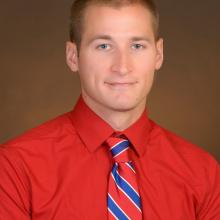
Daniel Magee
- Scholar Ph.D. Candidate in Biomedical Informatics
- Ellie and Michael Ziegler Scholar
- Daniel received a B.S. in Biochemistry, with a minor in Mathematics from Ohio State University. He specializes in bioinformatics and public health informatics, focusing his research on the analysis of zoonotic RNA viruses. A better understanding of the complex role between climate, population and genetics will enable health agencies to target the most at-risk areas resulting in a reduction of morbidity and mortality for zoonotic viruses.
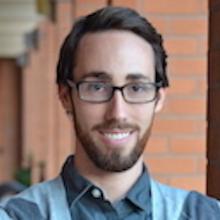
Patrick McGurrin
- Ph.D. Candidate in Neuroscience
- Burton Scholar
- Patrick received a B.S. in Psychology, with a minor in Neuroscience and Chemistry from University of Pittsburgh. He uses Transcranial Magnetic Stimulation (TMS), a painless, noninvasive method used to study the human brain, to investigate the functional role of specific brain regions involved in reaching and grasping. He researches the role of primary motor cortex in allowing humans to perform complex manipulation tasks.
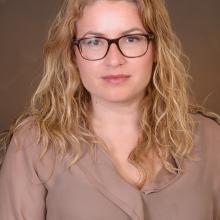
Natalie Mitchell
- Ph.D. Candidate in Microbiology
- Kucera Scholar
- Natalie received a B.S. and a M.S. in Biomedical Science from the University of Greenwich, London, England. She worked as a microbiology medical technologist for the National Health Service researching infectious diseases and antimicrobial resistance. During that time she was awarded a patent for the development of a novel kit for the detection of Extended Spectrum Beta-Lactamase producers (ESBLs) from clinical samples. Her research provides a platform for answering questions about the diagnosis, pathogenesis and treatment of the fungus that causes Valley Fever.
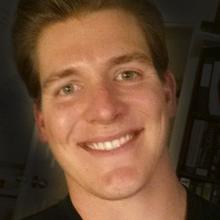
Jason Morken
- Ph.D. Candidate in Applied Mathematics
- Johnston Endowment Scholar
- Jason received a B.S. in Biochemistry and a B.S. in Mathematics from Arizona State University. His prostate cancer research uses a mathematical model consisting of differential equations to fit PSA data for individual patients by adjusting patient-specific free- parameters within their biologically appropriate ranges from literature. These parameter values are used to determine the treatment protocols for individual patients, predict with probability how individual patients will respond to treatment before they start and determine which, if any, mechanisms of resistance are developing in patients.
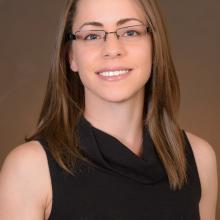
Denise Napolitano
- Ph.D. Candidate in Analytical Chemistry
- Roche/ARCS Scholar
- Denise received a B.S. in Chemistry from Barnard College of Columbia University. She then worked as a forensic scientist for the New York City Police Department where she analyzed evidence for the possible presence of controlled substances. She studies the processing of secondary organic aerosols in clouds and fog through the analysis of natural stable isotopes. This will assist in improving atmospheric models and alleviating the sources of organic compounds that adversely affect climate and human health.
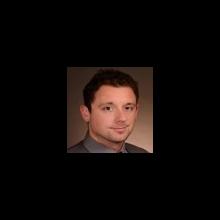
Louis Schoettle
- Scholar Ph.D. Candidate in Microbiology
- Roche/ARCS Scholar
- Louis received a B.S. in Biology from Ohio State University and a M.S. in Coastal Marine and Wetland Sciences from Coastal Carolina University. He uses DNA origami nanostructures as tools to study T cell diversity as it pertains to the development of a healthy immune system. Further studies will evaluate individuals undergoing immune reconstitution (i.e. after lymphodepletion) as well as prior to and after challenge with viral pathogens or vaccines. With this knowledge we will be able to begin to understand the balance between immune diversity and protection.
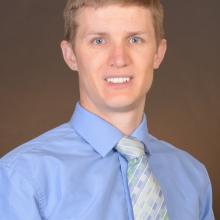
Jeffrey Skidmore
- Scholar Ph.D. Candidate in Mechanical Engineering
- Ellie and Michael Ziegler Scholar
- Jeffrey received a B.S. in Mechanical Engineering from Brigham Young University. He is investigating and characterizing sensorimotor control mechanisms of inter-leg coordination in human walking in order to create a novel gait therapy for stroke patients. By focusing on rehabilitation robotics, control systems, system identification, neuromuscular control and human locomotion this will lead to the development of technology for novel and more effective rehabilitation devices and therapy protocols.
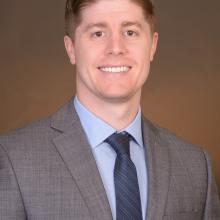
Eric Woolf
- Ph.D. Candidate in Microbiology
- Spetzler Scholar
- Eric received a B.S. in Biology from Wabash University and a M.S. in Biology from Arizona State University. He is exploring new strategies and mechanisms to sensitize malignant brain tumors to radiation therapy. One approach involves using a therapeutic ketogenic diet in combination with radiation. This approach dramatically enhances survival and alters a variety of malignant pathways in the brain tumor model. He is also testing a novel compound that carries large amounts of oxygen to a tumor making it more sensitive to radiation.
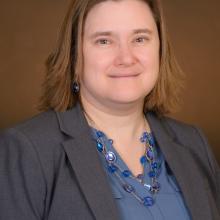
Michelle Young
- Ph.D. Candidate in Environmental Engineering
- Archer Scholar
- Michelle received a B.S. in Chemical Engineering and a M.S. in Environmental Engineering from Arizona State University. She worked as a project manager and manufacturing manager in the consumer products industry for 10 years. Currently she is investigating energy and byproduct production from municipal wastewater using microbial fuel cells. Her research provides fundamental and practical understanding of how to improve energy and nutrient recovery from wastewater and reduce the greenhouse gas impacts of wastewater treatment plants.
Northern Arizona University Scholars
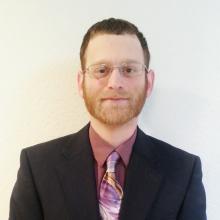
Anthony Hessel
- Ph.D. Candidate in Biology
- ARCS Scholar
- Anthony received a B.S. in Biology from Allegheny College and a M.S. in Biology from Northern Arizona University. He studies protein interactions at the molecular level and then uses that knowledge to help develop computer muscle models. His findings have the ability to reshape the way muscle physiologists and bioengineers work together to build limb prostheses.
Julia Hull
- Ph.D. Candidate in Biology
- ARCS Scholar
- Julia received a B.S. in Botany, with a minor in Chemistry from Weber State University. She seeks to discover direct and/or indirect links to the naturally occurring genetic variation within a plant species to the roles that beneficial fungi play in plant performance in the face of climate change induced stresses and or non-native species. This research will improve the restoration of damaged Southwestern United States riparian areas by providing data and methods that will increase the efficiency of habitat restoration.
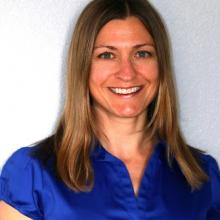
Suzanne Owen
- Ph.D. Candidate in Forestry
- ARCS Scholar
- Suzanne received a B.S. in Botany, with a minor in Chemistry and a M.S. in Biology from Northern Arizona University. Her research focuses on forest structure, seedling regeneration niches and the interaction between above and below ground communities after large, high-severity wildfires in ponderosa pine forests. This research will answer important ecological questions that will provide land managers with the tools and technology to improve forest conditions and prevent future hazards.
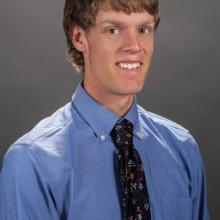
Michael Remke
- Ph.D. Candidate in Forestry
- The Kemper and Ethel Marley Foundation Scholar
- Michael received a B.S. in Environmental Biology from Fort Lewis College. His current research is on plant and soil organism interactions in the face of conservation biology and global climate change. Michael aims to find mechanisms that enhance plant growth as plants adapt to novel environments either through assisted migration or in situ adaptation to climate change or land use change.
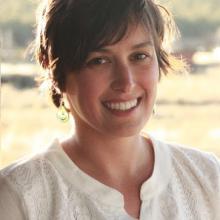
Rachel Rubin
- Ph.D. Candidate in Biology
- Templin Endowment and Windrow Endowment Scholar
- Rachel received a B.S. in Wildlife Ecology from the University of Florida. She worked as a botanist for Rocky Mountain National Park, the Wyoming Natural Diversity Database and the National Ecological Observatory Network. Her research uses native plants and soil to determine the mechanisms by which plants and microbes interact, the environmental conditions that threaten this mutualistic symbiosis and the potential use of microbial inoculation for improving plant survival under extreme climate events.
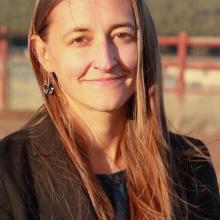
Molly Shuman-Goodier
- Ph.D. Candidate in Biology
- Lafollette Endowment and Libby Endowment Scholar
- Molly received a B.S. in Biology and B.A. in Spanish from Eckerd College. She had hands-on research positions with the National Park Service, Mass Audubon, the Smithsonian Tropical Research Institute, Round River Conservation Studies and the University of Colorado. Her doctoral research addresses the effects of endocrine disrupting chemical contaminants originating from agriculture on wildlife. She is integrating novel techniques from the fields of endocrinology and ecology to evaluate the impact of pesticide use on amphibians inhabiting rice agro-ecosystems throughout Southeast Asia.
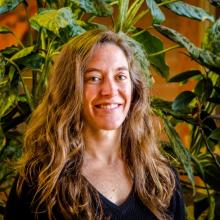
Clarissa Starbuck
- Ph.D. Candidate in Forestry
- Papadopoulos Scholar
- Clarissa received a B.S. and a M.S. in Fisheries and Wildlife Sciences with minors in Biology, Animal Sciences and Captive Wild Animal Management from the University of Missouri. Her research predicts migratory bat use in open lands of northern Arizona that are characteristically similar to areas where wind energy facilities currently exist or have been proposed. Bat species are important in the United States for pest control, but they are killed at wind turbines at alarming rates. Her research will prevent bats from being killed by wind turbines, but still allow the advancement of renewable energy.
University of Arizona Scholars
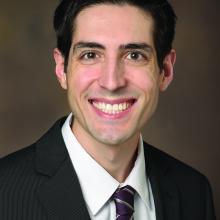
Andrew Flores
- Ph.D. Candidate in Physiological Sciences
- Might Scholar
- Andrew received a B.S. in Psychology and a M.S. in Physiological Sciences from the University of Arizona. He is using stem cell technology to investigate the etiology of Parkinson’s disease (PD). His research involves a unique approach, using induced pluripotent stem cell technology to investigate the association between PD and malignant melanoma. This will result in the creation of a patient- specific model of the PD-melanoma connection.
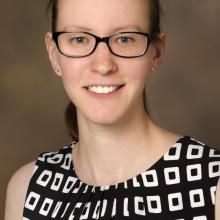
Katheryn Decker French
- Ph.D. Candidate in Astronomy
- Burton Scholar
- Katheryn received a B.S. in Physics and Planetary Science from MIT and a M.S. in Astronomy from the University of Arizona. She uses visible light and radio observations to study star formation in galaxies as they evolve through the post-starburst phase. She can look in detail at the past history of these galaxies and predict how they will evolve in the future.
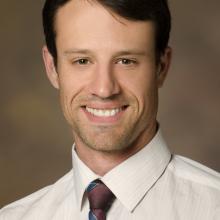
Jeffrey Gillan
- Ph.D. Candidate in Natural Resources
- Van Denburgh Scholar
- Jeffrey received a B.S. in Park Management and Conservation from Kansas State and a M.S. in Environmental Science from University of Idaho. His current research uses unmanned aircraft to map, monitor and image ecosystems in order to provide actionable data to land managers for making decisions about use of land for livestock, mineral and energy extraction, recreation, wildlife conservation and biodiversity.
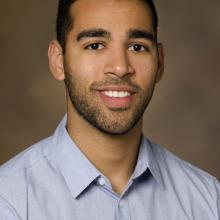
Cecil Gomes
- Ph.D. Candidate in Cellular and Molecular Medicine
- Fannin Scholar
- Cecil received a B.S. in Molecular and Cellular Biology from the University of Arizona. His research is focused on the development and progression of non-small cell lung cancers (NSCLC), a sub-type of lung cancer consisting of 85% to 90% of all lung cancer cases. His work is centralized around the study of a particular protein known as 14-3-3 gamma (14-3-3y). Patients with advanced NSCLCs and elevated levels of the protein can benefit from a more aggressive therapy to combat the mechanisms driving poorer survival.
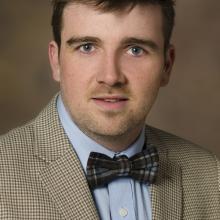
Nicholas Henscheid
- Ph.D. Candidate in Applied Mathematics
- Kathryn Johnston West Scholar
- Nicholas received both a B.S. and Masters in Mathematics from Western Washington University. He is a pioneer in the effort to study photon-processing x-ray and gamma-ray imaging systems from the standpoint of advanced linear algebra and stochastic processes. He will apply state-of-the-art parallel computing systems to convert the sophisticated theory into practical imaging algorithms. The goal of his research is to make medical imaging safer and more effective at producing usable images which will help physicians make improved decisions about diagnosis and therapy with regard to their patients.
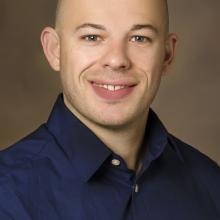
Matthew Humphries
- Ph.D. Candidate in Chemistry
- Sandra Matteucci/Ralph Matteucci Memorial Endowment Scholar
- Matthew received a B.A. in Chemistry from Augustana College. His research aims to explore the properties of the strongest electron donors known to man and the development of new technologies for their application in areas ranging from generation of hydrogen for large scale industrial processes to new methods for synthesis of medicine and drugs.
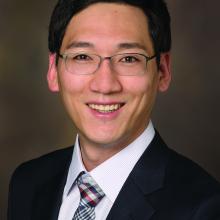
Hwee Hwang
- Ph.D. Candidate in Civil Engineering
- Tucker Scholar
- Hwee received a B.S. and a M.S. in Civil Engineering from the University of Arizona. His thesis was “Resilience-Based Failure Mode Effects and Criticality Analysis for Regional Water Supply System,” and it was accepted for journal publication. His current research is focused on developing a systems framework utilizing advanced scientific, engineering and socio-economic tools to support comprehensive water resource planning and management in water-stressed areas.
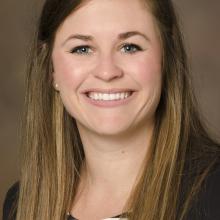
Sarah Lehman
- Ph.D. Candidate in Physiological Sciences
- Eller Scholar
- Sarah received a B.S. in Chemical Biology from Stevens Institute of Technology. She is studying left ventricular non-compaction (LVNC) a distinct form of cardiomyopathy. Her scientific goal is to predict the primary insult to the heart and track the progression of mutations that cause LVNC in order to design therapeutic interventions to delay or prevent LVNC in patients who may have the mutation. Sarah is interested in running a lab at a top tier university in collaboration with a physical therapy clinic in which she can implement novel therapies and training programs for young athletes diagnosed with this disease.
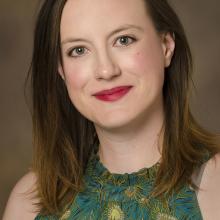
Leila Lindeman
- Ph.D. Candidate in Cancer Biology
- ARCS Scholar
- Leila received a B.A. in Biology from Grinnell College. She plans to develop and apply tumor acidosis measurements via acidoCEST MRI imaging as a biomarker for cancer diagnosis, prognosis and therapy response. Leila is also developing an MRI method to distinguish between indolent valley fever nodules and cancer lesions in the lung, the first non-invasive test for the differential diagnosis of those particular conditions. This assay has the potential to improve the lives of many patients in the Southwestern United States.
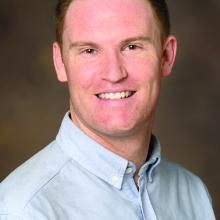
Phillip McFarland
- Ph.D. Candidate in Geophysics
- The Kemper and Ethel Marley Foundation Scholar
- Phillip received a B.S. in Applied Mathematics from the University of Arizona. His research interests include tectonic processes associated with mountain belt formation, crustal deformation mechanisms and remote sensing methods for space geodetic measurements. He is currently involved in an international collaboration to measure crustal deformation in the central Andes using high precision GPS.
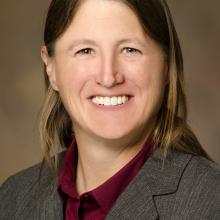
Cheryl McIntyre
- Ph.D. Candidate in Ecology and Management of Rangelands
- ARCS Scholar
- Cheryl received a B.S. in Chemistry from the University of Portland and a M.S. in Chemistry from the University of Oregon. Cheryl’s research focuses on the drivers of biological soil crust distribution and the role of biological soil crusts in determining the plant communities of Western drylands. Given the significant ecological and economic costs of invasive species, she is particularly interested in leveraging scientific findings to develop cost-effective strategies for managing invasive plants.
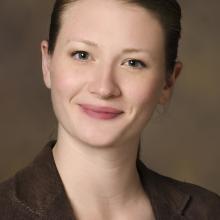
Shaunna Morrison
- Ph.D. Candidate in Geosciences
- Theresa F. Jennings Memorial Scholar
- Shaunna received her B.S. in Geology from Georgia Southwestern State University and M.S. in Geology from the University of Arizona. Her research focuses on the crystal-chemistry of Martian minerals and rare earth element (REE) mineral evolution. Her results will help scientists better predict, understand and reproduce REE which should help engineers find new and more efficient ways to utilize the elements resulting in better super magnets, batteries and other high tech products.
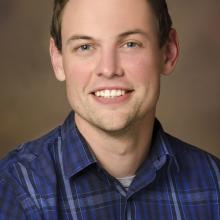
Kevin Pond
- Ph.D. Candidate in Cellular and Molecular Medicine
- Mary Ann White Memorial Scholar
- Kelvin received his Biochemistry degree from the University of Oregon and a M.S. in Chemistry from Northern Arizona University. His research focuses on the key pathways that regulate the cell’s ability to respond to and repair DNA damage. As cells reproduce there is a chance that something can go wrong. More specific treatment options can be pursued with regard to cancer by studying and understanding the biomarkers for DNA damage and repair.
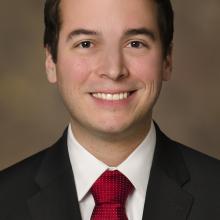
John Ryniawec
- Ph.D. Candidate in Cellular and Molecular Medicine
- Marley Foundation Scholar in Memory of Milton “Bud” Webb
- John received his B.S. in Biology from Westminster College. He taught general biology and microbiology courses to nursing, pre-med and biology students at Duquesne University. He studies the regulation of the centrosome duplication cycle, which is essential for genome maintenance, tissue organization and development of a multicellular organism. By dissecting the molecular mechanism that regulates, centriole length, John hopes to discover novel targets for identifying predisposition to disease and treatment of these diseases
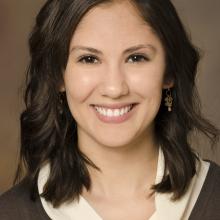
Kate Smith
- Ph.D. Candidate in Physiological Sciences
- ARCS Scholar
- Kate received a B.S. in Physiology and a M.S. in Physiological Sciences from the University of Arizona. She is researching islet transplantation as a therapy for Type 1 diabetes. She is working with immunoisolation devices which can encapsulate the islets and therefore isolate them from the immune system. This technology offers not only the opportunity for normal physiological function, but also for that function to come without the many severe side effects of immunosuppression.
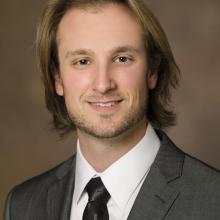
Jeffrey Watson
- Ph.D. Candidate in Biomedical Engineering
- Crawford Endowment Scholar
- Jeffrey received a B.S. in Biomedical Science from Northern Arizona University. He is developing novel imaging devices to improve surgical image guidance where the goal is to improve healthcare and patient outcomes. Developing a fully digital augmented stereomicroscope will allow surgeons to see superimposed visible and synthetic image features as a composite stereoscopic image, resulting in the ability to simultaneously view tissue and synthetic information.
